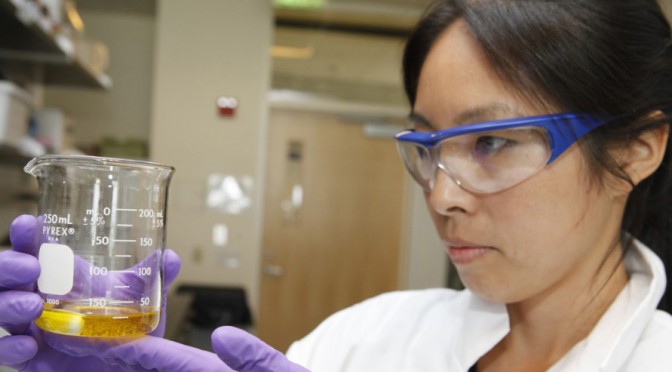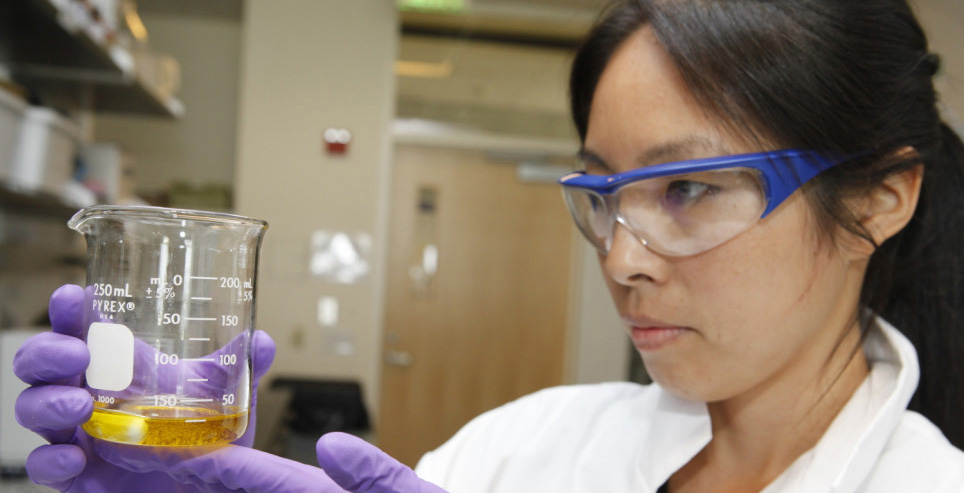Oils and fats update January 2024
Laurence Eyres FNZIFST
Expert scientists visit Massey university NZ (Auckland)
Professor Selina Wang (UC Davis) and Dr. Bertrand Matthaus recently visited NZ as guests of Professor Marie Wong at Massey Albany. Professor Wong had obtained funding from a catalyst project to work on avocado oil. Bertrand was one of the original researchers on MCPD analysis and its reduction in processed oils. Selina is the Scientist in USA who exposed the fraudsters selling adulterated avocado (80% of the US market) oil as virgin oil. It is a great opportunity for NZ science to be cooperating with such leaders in the fields of food science which is crucial to NZ despite politicians and University administrators being blind to the facts. The joint project is entitled” Improving market access for NZ avocado oils by ensuring high quality and food safety.” The two visiting scientists not only spent time with the PhD student (Roy) they also presented seminars at plant and Food Research in Auckland. These were well received.
Oleogels project
The Oils and Fats Group sponsored project at Massey university has been completed by Michael Dihardjo. Oleogels are comprised of solid particles suspended in a liquid continuous phase, with an organised microstructure that allows the gels to appear visually rigid or semirigid (Marangoni & Garti, 2018). These oleogels are composed of emulsifiers and edible oils), which can be used in baked products as they can produce the desired texture) and reducing the consumption of saturated or total fat content.
Michael finalised his sponsored project which discovered some interesting facts about oleogels, and he also produced some very tasty muffins.
Michael’s project was kindly funded by Bakels Edible Oils.
Sadly, this could be the last of the NZ Oils and fats group sponsored research projects at Massey because the bureaucratic powers have scrapped most of food science capabilities at Albany.
Refining update
Several colleagues and I have a paper in preparation for the American oil chemist’s association (AOCS) on the processing of avocados and avocado oil.
This involves a full analysis of the major and minor components of avocado oil and process is to remove the under desirable components. Some of them such as diglycerides, vitamins, phytosterols, tocopherols, and polyphenols have important health benefits in humans], and therefore they should not be removed during processing. Other compounds known for their negative effect on the quality and stability of oils, include free fatty acids, unsaponifiable matters, waxes, pigments, solid impurities (mainly fibres), oxidation products (peroxides, aldehydes, ketones, alcohols, and oxidized fatty acids).
Lipids (lipopolysaccharides) involved in bacteria resistance.
Scientists have discovered an entirely new class of antibiotic that appears to kill one of three bacteria considered to pose the greatest threat to human health because of their extensive drug-resistance.Zosurabalpin highly defeated drug-resistant strains of Carbapenem-resistant Acinetobacter baumannii (Crab) in mouse models of pneumonia and sepsis and was being tested in human trials.
Crab is classified as a priority 1 critical pathogen by the World Health Organization, alongside two other drug-resistant forms of bacteria – Pseudomonas aeruginosa and Enterobacteriaceae.
I personally had a nasty experience with psudomanas aeruginosa as it nearly carried me off to the great lipid lab in the sky.
“Crab is a significant cause of infection in hospitals, particularly in people who are on ventilators. “While it is not an aggressive pathogen it is resistant to multiple different antibiotics, making it difficult to treat.
“Unfortunately, development of new treatments against this bacterium has been extremely challenging because it is very adept at keeping antibiotics from getting past its outer cell layer. Therefore, this work is exciting, and provides confidence that the approaches being used to find new antibiotics can bear fruit.”
Antibiotic-resistant infections pose an urgent threat to human health – particularly those caused by a large group of bacteria known as Gram-negative bacteria, which are protected by an outer shell containing a substance called lipopolysaccharide (LPS).
“LPS allows bacteria to live in harsh environments, and it also allows them to evade attack by our immune system,” said Dr Michael Lobritz, the global head of infectious diseases at Roche Pharma Research and Early Development in Basel Switzerland, which developed the new drug.
No new antibiotic for Gram-negative bacteria have been approved in more than 50 years.
Omega-3 update.
Interest in the potential cardiovascular (CV) benefits of omega-3 polyunsaturated fatty acids (Ω-3) began in the 1940s and was amplified by a subsequent landmark trial showing reduced CV disease (CVD) risk following acute myocardial infarction. Since that time, however, much controversy has circulated due to discordant results among several studies and even meta-analyses. Then, in 2018, three more large, randomized trials were released-these too with discordant findings regarding the overall benefits of Ω-3 therapy. Interestingly, the trial that used a higher dose (4 g/day highly purified eicosapentaenoic acid (EPA)) found a remarkable, statistically significant reduction in CVD events. It was proposed that insufficient Ω-3 dosing (<1 g/day EPA and docosahexaenoic acid (DHA)), as well as patients aggressively treated with multiple other effective medical therapies, may explain the conflicting results of Ω-3 therapy in controlled trials.
It is important to use purified, concentrated and characterized omega-3 supplements.
So many times, omega-3 reviews have been plagued by rancid or impure omega-3 supplements. Now GOED are working on an approach to minimize these errors.
The way to minimize inter-laboratory differences is to ensure that all involved laboratories participate in the AOCS-GOED Nutraceutical Oils Laboratory Proficiency Program (LPP), which allows laboratories to assess their proficiency in quantifying EPA, DHA, and other omega-3 fatty acids on an annual basis. GOED considers participation in this program essential. GOED is also planning to institute a program that acknowledges highly proficient laboratories to help GOED members choose a testing partner that accurately quantifies EPA and DHA (more details to come on this program in the coming weeks).
New monounsaturated cooking oil
A new product on the market in the USA is a cooking oil made by fermentation: High in healthy fats and low in bad fats, this Cultured Oil is produced using 85% less land than canola oil, emits 86% less CO2 than soybean oil, and requires 99% less water than olive oil. At $29.99 per 250 ml, it is significantly more expensive than its vegetable counterpart, but replacing just 5% of vegetable oils used in the U.S. with so-called cultured oil, the company claims, would free up 3.1 million acres of land every year.
The company will not disclose the exact kind of microorganism being used to produce Zero Acre’s Cultured Oil, but he says the company works with both non-GMO yeast and microalgae. “We focus on cultures that naturally produce healthy fats, and yeast and microalgae do that efficiently,” he says.
The process starts with a proprietary culture made up of food-producing microorganisms (yeast or microalgae) that is fed natural plants like sugar beet and sugarcane. (The company does not grow these directly, but both are part of its supply chain.) Over the course of a few days, the microorganisms convert, or ferment, the natural plant sugars into oils or fats. The resulting mixture is then pressed, and the oil is released, separated, filtered, and cultured oil is born. (Nobbs describes the taste as “lightly buttery,” though you can taste it only if you have it straight up with a spoon.)
Dr Allan Green from Australia points out that for a highly monounsaturated (80%) one could simply use high oleic sunflower oil produced in Australia or USA.
Refer work done by Julian Davies (DSIR NZ) reported in Lipid Technology
Kennedy, M.J., Reader, S.L., Davies, R.J. et al. The scale up of mycelial shake flask fermentations: A case study of gamma linolenic acid production byMucor hiemalis IRL 51. Journal of Industrial Microbiology 13, 212–216 (1994). https://doi.org/10.1007/BF01569750
Coffee consumption and health: umbrella review of meta-analyses of multiple health outcomes
BMJ 2017; 359 doi: https://doi.org/10.1136/bmj.j5024 (Published 22 November 2017): BMJ 2017;359: j5024.
The umbrella review identified 201 meta-analyses of observational research with sixty-seven unique health outcomes and seventeen meta-analyses of interventional research with nine unique outcomes. Coffee consumption was more often associated with benefit than harm for a range of health outcomes across exposures including high versus low, any versus none, and one extra cup a day. There was evidence of a non-linear association between consumption and some outcomes, with summary estimates indicating largest relative risk reduction at intakes of three to four cups a day versus none, including all-cause mortality (relative risk 0.83, 95% confidence interval 0.83 to 0.88), cardiovascular mortality (0.81, 0.72 to 0.90), and cardiovascular disease (0.85, 0.80 to 0.90). H
Bone support for ageing and sickness recovery
Beta-hydroxy-beta-methyl butyrate (HMB) is a metabolite of the essential amino acid leucine that has been reported to have anabolic effects on protein metabolism. The aims of this article were to summarize the results of studies of the effects of HMB on skeletal muscle and to examine the evidence for the rationale to use HMB as a nutritional supplement to exert beneficial effects on muscle mass and function in various conditions of health and disease.
The data presented herein this article indicate that the beneficial effects of HMB have been well characterized in strength-power and endurance exercise. HMB attenuates exercise-induced muscle damage and enhances muscle hypertrophy and strength, aerobic performance, resistance to fatigue, and regenerative capacity. HMB is particularly effective in untrained individuals who are exposed to strenuous exercise and in trained individuals who are exposed to periods of high physical stress.
I am carrying out a clinical trial of this stuff following big son (naturopath) advice.
Journal of Cachexia, Sarcopenia and Muscle Volume 8, Issue 4 p. 529-541
Cognitive decline and prevention
Can eating a specific food or following a particular diet help prevent or delay dementia caused by Alzheimer’s disease? Many studies suggest that what we eat affects the aging brain’s ability to think and remember. These findings have led to research on general eating patterns and whether a person’s diet might make a difference.
Healthy eating patterns have been associated with cognitive benefits in studies, but more research is needed — and is underway — to determine if what we eat can prevent or delay Alzheimer’s or age-related cognitive decline.
How could what we eat affect our brains? It’s possible that eating a certain diet affects biological mechanisms, such as oxidative stress and inflammation, that underlie Alzheimer’s. Eating a certain diet might increase specific nutrients that may protect the brain through anti-inflammatory and antioxidant properties. It may inhibit beta-amyloid deposits, which are found in the brains of people with Alzheimer’s or improve cellular metabolism in ways that protect against the disease.
Or a person’s diet works indirectly by affecting other Alzheimer’s risk factors, such as diabetes, obesity, and heart disease. For example, the typical Western diet increases cardiovascular disease risk, contributing to faster brain ageing. A growing area of research focuses on the relationship between gut microbes — tiny organisms in the digestive system — and aging-related processes that lead to Alzheimer’s. The important role of physical activity and exercise, and how this interacts with diet, cardiovascular health, and brain health must also be considered..
- In one observational study of 116 cognitively normal adults, those who followed a Mediterranean diet had thicker cortical brain regions than those who did not. I think quite highly of Michael Moseley’s books and publications.
The two just recently read are.
“Fast asleep-how to get a good night rest.”
“Just one thing-how simple things can transform your life.”


